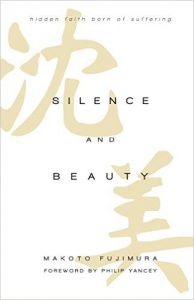Pushed Into a Hostile World

Historical consistency is certainly one of the unique marks of Christianity. Christians proclaim the exclusive claims of Jesus as we respond to Jesus’ own words: “I am the way and the truth and the life. No one comes to the Father except through me” (John 4:6). I used to wrestle with this statement and with the forceful ways that the church asserted its assumed dominance on culture and its exclusive claims over other religions. But over time I came to realize that this exclusivity came out of the mouth of Jesus first and in the character of Jesus quite consistently. Thus, apart from the church’s institutional need to preserve itself, this idea of establishing a personal relationship with Jesus is highlighted uniquely by the historic reality of Jesus. Religions come to us with sets of rules we must follow to please God; Jesus comes to us to dwell within our lives not only to show us the way, but so we will experience, perhaps for the first time, unconditional love and grace. Religions call us to join and support the institution; Jesus calls us to a liberation of hearts and minds, and invites us into a community of radical generosity, inclusion and faithfulness. The Ten Commandments and the law of God are the result of what happens when we have Jesus live through us. Even King David, Moses and Abraham of the Jewish heritage looked to a future when these righteous paths would be fulfilled perfectly in a person. St. Paul, a religious Pharisee who had tried to live perfectly within the law, tells us repeatedly in the epistle to the Romans that our efforts to obey the law turn into an enslavement and create a wretched condition of pride, especially if we think we are successful in pleasing God.
Culture is a complex ecosystem of often-conflicting and competing elements. God, in wisdom, provided complexity and diversity in Eden then preserved it in the fallen world. Christianity claims that in order for the entire diversity of confluences to bring all to thrive, we need a center that holds all things together. St. Paul, in the letter to the Colossians, states of Christ, “He is before all things, and in him all things hold together” (Colossians 1:17). Christ is that center.
In the hidden nature of the postlapsarian (fallen) world, that center may remain invisible. It requires faith to trust in the invisible rather than the visible. The true church may remain invisible to the eye, or exist beyond any institutional structures. Therefore, no matter how perfect our churches may be, no institution can claim to have all the answers. This is the paradoxical nature of Christ’s exclusivity; Christ is “the way and the truth and the life,” but he, as a good Shepherd, may lead his sheep to the wider pastures of his own design to push us out into a world that may be hostile to our faith. These wider pastures demand a nonexclusive relativism. Christ may indeed lead us to mystery and humility that gives away power; thus this exclusivity comes with quite a price. Christ holds the center still, and yet guides us into the storms of life.
Copyright © 2016 Makoto Fujimura

